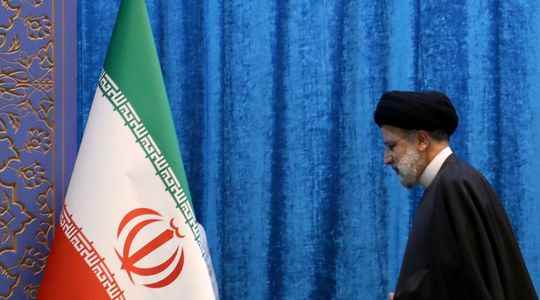At the end of February, in Vienna, all the planets seem aligned: from Washington to Tehran, via Paris, Berlin and Beijing, an international agreement is in sight to regulate the Iranian nuclear program and prevent the Islamic Republic from seizing of the atomic bomb. In exchange, the West says it is ready for a gradual lifting of international sanctions that are suffocating the Iranian economy. But the deal collapses at the last minute as Russian tanks cross Ukraine’s borders.
At first, Russia, itself facing unprecedented international sanctions, froze the signing of the agreement. “The war in Ukraine blocked any negotiation, explains Ehud Yaari, Middle East specialist and researcher at the Washington Institute for Near East Policy. The Russians pressured the Americans to add exceptions to the nuclear agreement Iran, in particular to ensure that they could sell missiles to Tehran and that Rosatom would be authorized to build 10 billion dollars of nuclear reactors in Iran. After receiving guarantees from Washington, Moscow withdraws its demands. But the damage is done, and the positive round of negotiations is broken.
Tehran’s ultimatum to the United States
The discussions in Vienna are in a delicate phase, halfway between a very close agreement and a total abandonment. The delegations have returned to their respective capitals and are awaiting a sign from Tehran, which is demanding new Western concessions. “We will only come back to Vienna to put an end to the agreement,” warned Iran. In Doha last week, Iran’s former foreign minister, Sayyid Kamal Kharrazi, announced that a deal was “imminent”, but depended “on the political will of the United States”.
Tehran is now demanding the impossible, or almost, from Washington: the removal of the Revolutionary Guards, the armed forces of the Supreme Leader, from the list of terrorist organizations. This designation, above all symbolic, poses a major political problem for Joe Biden: six months before the midterm elections, the Republican Party will have a good time accusing him of cooperating with the enemies of America and strengthening them. he accepts this Iranian request. Donald Trump, who placed the Revolutionary Guards on the terrorist list in 2019, remains in ambush and has already promised to get out of a possible agreement with Iran if he is re-elected in 2024…
This Iranian demand also reveals a new state of mind in Tehran, which knows that it is in a position of strength since the start of the war in Ukraine. Iran is aware that Europe will have to put an end to its energy dependence on Russia in the short term, and must urgently find other sources of gas and oil. The Islamic Republic can produce more than two million barrels per day, enough to calm the surge in world prices.
“Europe obviously needs Iranian gas and oil much more today than three months ago, poses Bruno Tertrais, deputy director of the Foundation for Strategic Research. We cannot completely cut ourselves off from Russian gas. in a few months. Fortunately, we have Qatar, the United States and other alternative sources of energy, but having access to Iranian gas would be positive.”
Sign of the prevailing mood in Tehran, the Iranian Parliament wrote an open letter at the beginning of the week to the president, the ultraconservative Ebrahim Raïssi, to ask him “more robust guarantees from Washington”. For their part, the Revolutionary Guards show no desire for appeasement and castigated, in early April, “the mafia and terrorist regime” in place in the United States.
Putin shows the benefits of the nuclear threat
Beyond its new energy importance, a strategic debate agitates Tehran: why abandon its military nuclear program, while Vladimir Putin proves to what extent the fear of atomic weapons paralyzes Westerners? “The Iranian press devotes page after page every day to Ukraine’s surrender of its hundreds of nuclear weapons, returned to Russia in the 1990s in exchange for a piece of paper signed in Budapest [NDLR : le mémorandum de 1994], supposed to guarantee the independence and territorial integrity of Ukraine, underlines Ehud Yaari. These kinds of guarantees have never enjoyed particular esteem in the Middle East, and this is all the more true today. For many Iranians, this invasion would not have happened if Ukraine had retained its nuclear arsenal.”
While the war in Ukraine captures international attention, the Iranian nuclear file remains in a dangerous phase: according to experts, Tehran has made such progress in enriching uranium that it would only need six weeks to produce the material needed for an atomic weapon. A diplomatic emergency could quickly drive out the other.
